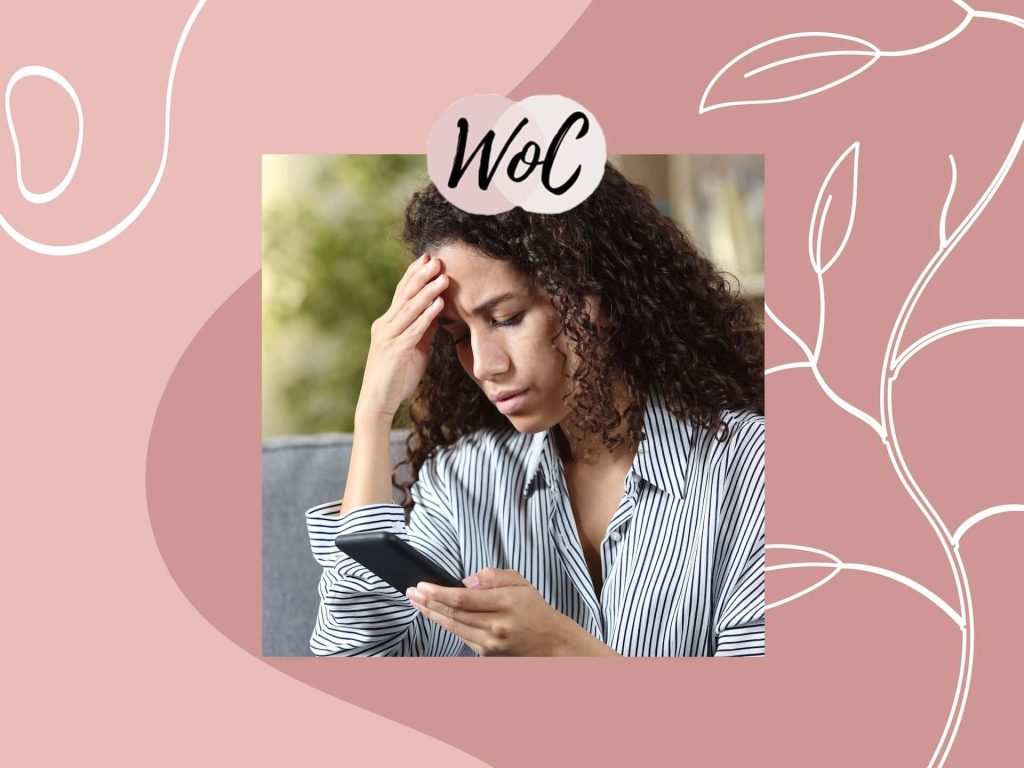When you’re in the middle of an ongoing mental health struggle, having a happy relationship can seem like an impossible thing. How can you focus on connecting with someone when you’re barely holding together? Is dating with depression even a good idea? We can help you answer these and many other questions on this topic. Let’s learn to navigate courting waters when struggling with a depressive disorder.
When you are depressed, the world can seem sad and pointless – your symptoms are fooling you and changing your mindset. You don’t feel like yourself, so you wonder – who would want to be dating a woman with depression (the same goes for dating a man with depression, of course)? Should you even go out there? Going on dates can be scary even when your brain isn’t persuading you that you’re worthless and will always be sad. How to get out there?
How to Approach Dating With Depression?
Love and attraction are great for taking your mind off dark thoughts and can help you see the bright side of the world. Having a connection with someone will make you feel alive – you will forget about your energy-draining symptoms, at least for a little while. But will you be able to handle going on dates and building a relationship?
This is the first thing you should ask yourself. Sure, depressed people can absolutely date, but you still have to decide if it’s the right time for that, or you still need to focus on your well-being.
Be Ready to Handle Rejection – Mixing Depression and Dating Can Impact Your Self-Esteem
As we’ve mentioned, dates can be tough even for those who aren’t struggling. Finding a partner and maintaining a healthy relationship isn’t always easy, but when you add the depressive disorder to the equation, things become complicated. Why? Well, one of the basic symptoms of this mental illness is losing self-esteem, and (obviously) it can be hard to handle rejection when that’s the case.
Yet, rejection is a normal part of life, and you have to be ready for it. It doesn’t diminish your value, and it says nothing about you, but depressed people often can’t see it that way because their symptoms are trying to trick them – always keep this in mind.
How to Tell a Partner About Your Struggles?
How to break the news to your partner that they’re dating someone with depression and anxiety (you probably know that these two often go together)? The crucial thing is that you do not make too big of a deal out of this.
Understandably, it is a very important aspect of your life, but try not to present it as a dominant one. You are depressed, but that’s not your personality. It’s only an illness that will hopefully be cured in time, with proper treatment – therapy sessions and medication.
When Is the Right Moment to Talk About Your Mental Health?
Don’t rush with sharing your struggles – it can be too much for both you and your partner if you decide to talk about this in the early stages of the relationship. It’s important to get to know each other first. Obviously, chatting about mental health struggles isn’t really first-date material.
Give it some time – but try not to wait too long. Otherwise, the partner might feel like you’ve been misleading them. Still, remember that you deserve support, and if the other person can’t offer that to you, maybe it’s a good idea to rethink your choice.
Keep in Mind That Being Happy and in Love Won’t Make the Disorder Go Away
Butterflies in your stomach when you see that special person will feel great and might even let you forget about struggles, medication, and treatment that go with being depressed. However, we hope that won’t fool you. Being in love doesn’t magically cure depressive disorders.
If you think that you’re finally feeling amazing and no longer need treatment, think again. You shouldn’t give up professional help because of this. It’s not a real solution – love is masking the issue, so make sure you continue seeing your therapist.
You Are the Only Person That Can Fix Your Problems – Don’t Rely on Help or Validation From Other People
Validation from romantic partners often seems like it can help us build our self-esteem. Unfortunately, things aren’t so easy. Sure, it might help you in some measure, but it’s not a permanent solution – the same thing we’ve said about love can be applied here.
Think of it this way – what if you break up and your self-esteem is based on that person’s approval? Needless to say that in that case, your self-esteem will be lost. That’s why you should only rely on yourself when building your confidence – focus on self-care. Your approval is the only thing that matters.
Dating While Depressed and on Medication – How Can Antidepressants Affect Your Relationship?
If your treatment includes antidepressants, you might notice some negative effects the medication has on your love life – but there’s no reason for panic and anxiety. What do we mean by this? Well, no medication is perfect, so you can’t expect these ones to be as well. Antidepressants can have negative side effects, which usually aren’t severe and are rarely the reason to stop taking them. They don’t happen to everybody who takes these medications, but it’s good to be aware they exist, so you can recognize the problem in case you experience it.
Side effects can be annoying – lower libido than usual is the most common occurrence. You might also experience anorgasmia – the inability to have an orgasm. Anorgasmia in women is common when going through mental health issues – sometimes even without medication. Also, you should be prepared for the possibility of changes in appetite. It can be lower or higher than usual, which in turn leads to weight changes – they can affect your body image and confidence.
Communicate With Your Partner
Communication is always an essential part of interpersonal relationships. Even if you weren’t depressed, we would advise you to work on open communication. However, for depressed individuals, it is very important to have emotional support and understanding from their significant other, and that can’t be achieved without talking about the issue.
Keep in mind that most people have no real understanding of depressive disorders. You should encourage your loved one to research the topic, so they can understand you and your (sometimes) odd behavior that is the result of the disorder.
Talk About How Being Depressed Can Make You Feel Numb
Being depressed can be described as numbness – you simply lack feelings. This can potentially be a problem for you and your significant other. Of course, if you talk about it, your loved one will understand the issue. So, what happens in a depressed brain? Occasionally, it can fool you into thinking that you aren’t in love, even if you have a perfect someone by your side.
The crucial thing is to remember that this is just your off-balance brain chemistry playing tricks on you. Be sure to explain this to your significant other because it can be confusing and even hurt their feelings if they notice you lack the excitement.
Mental Health Should Always Be Your Priority
Although relationships can bring a lot of good into your life, you must keep in mind that they can also interfere with your progress. If your romantic interest brings up anxiety issues and makes you want to call your therapist, they’re not the one. The number one priority in your life should always be your mental health.
That can’t change because of somebody, no matter how great they seem to be. If you lack support from them, they will have a negative impact on your current mindset, and you shouldn’t keep them around. You’ve been working hard on your well-being since the first therapy appointment, and it should stay that way.
You Can Handle This, the Same Way You Can Handle Anything Else – Your Disorder Doesn’t Have to Rule Your Life if You Fight It
We all lack motivation and confidence sometimes – but when you’re depressed, that feels as if the world is ending. Remember – that wave of insecurity is just a symptom. It doesn’t represent your character, and you are much stronger than that. Although it can often seem to be the case, your disorder isn’t your whole life, and it certainly doesn’t have to rule it – you shouldn’t let it. With a trustworthy therapist, emotional support, and medication, if needed, you can change the narrative. It won’t be easy or quick, but you know what they say – good things take time.


